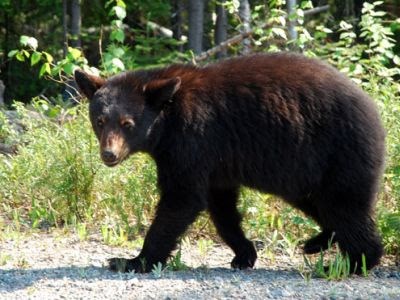By Peter Ferris.
I am writing to add my voice to the significant number of Ontario residents who want the Ontario government to reverse their decision to bring back an expanded spring bear hunt.
Despite significant opposition, including a petition that garnered almost 100,000 signatures, the Ontario Ministry of Natural Resources and Forestry (MNRF) approved a five year extension to the spring bear hunt pilot program introduced in 2014. The expanded bear hunt (opening May 2, 2016) will be open to non-residents in all wildlife management units with an open bear season and permit baiting and the use of dogs.
The often repeated rationale that the spring bear hunt will serve to reduce human-bear conflicts has been discredited by the Ministry’s own research. The Nuisance Bear Review Committee report (2003) concluded that evidence did not support the hypothesis that a spring bear hunt controls, limits or reduces levels of nuisance activity by black bears. Nevertheless, the committee recommended that the spring bear hunt be reinstated for socio-economic reasons.
In her annual (2015) report, the environmental commissioner of Ontario was highly critical of the Ontario government’s decision to reintroduce the spring pilot bear hunt in 2014, noting that the MNRF made the decision based on incomplete harvest data, ignored its own research that questioned the utility and justification of the pilot project and disregarded advice of the nuisance bear review committee. These failures should cause us to ask if the MNRF is a credible manager of our natural resources and whose interests are being served by their policy decisions.
Arguments have been advanced by some parties that hunting represents significant potential economic activity (see the report “Does the Spring Bear Hunt Make Cents” by Dr. Mike Commito of the Northern Policy Institute). As we follow these arguments we should worry what restrictions will be allowed to limit that economic potential in the future. Will open spring seasons on other species be allowed? Will longer seasons be promoted? Will more provincial parks and protected areas be opened to hunting?
It seems obvious that the expanded spring bear hunt is being opened to non-residents under the expanded 5 year pilot program because hunting is an activity pursued by a very small percentage of Ontario residents. According to the Canadian Nature Survey (2012) only 5% of adult Ontario residents are hunters. With so few Ontarians hunting, the only solution to strengthening the sport hunting economy is to increase the number of non-resident hunters.
When such a small percentage of Ontario residents engage in hunting, the general public should be concerned about the degree of influence by the Ontario Federation of Hunters and Anglers (OFHA) and other vested interests on Ministry policy and decision-making. The wildlife and natural resources of Ontario “belong” to all Ontarians and the hunting lobby should not be allowed to exercise undue influence over public policy. There are many other users of our wild spaces (canoeists, campers, hikers, photographers, bird watchers, etc) who would prefer not to share the spring woods or protected areas with hunters.
I am offering my thoughts as someone who has lived and worked and travelled extensively in northern and northwestern Ontario. I am not opposed to hunting per se. I understand that subsistence hunting is a necessary reality in many remote parts of Canada and that dangerous or nuisance animals must sometimes be destroyed. But based on my experiences, I also know that bear hunting is for most hunters a “sport” and not a primary or necessary food gathering activity.
The ethical arguments around the reintroduction of the spring bear hunt point to many other related issues that concern growing numbers of people: the ethics of sport hunting in general, the failure of our governments to protect wildlife and shrinking habitats, and the constant economic justification for activities that do harm to other creatures and the natural world.
In an era when human activities are threatening numerous habitats and species, I believe the ethics of sport hunting and the meaning of wildlife management deserve to be publicly debated more rigorously. We share this planet with other creatures and for their sake and ours we must learn to coexist without inflicting needless destruction and suffering.
Peter J. Ferris



